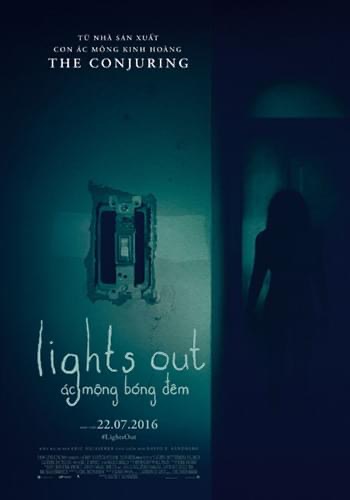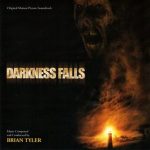Lights Out (2016)

Lights Out (2016), directed by David F. Sandberg and produced by James Wan, is a supernatural horror film that capitalizes on the primal fear of the dark. Based on Sandberg’s 2013 short film of the same name, the movie delivers a compact yet effective horror experience.
Plot Summary:
The story revolves around Rebecca (Teresa Palmer) and her younger brother, Martin (Gabriel Bateman), who are terrorized by a malevolent entity that only appears in darkness. This entity, named Diana, is linked to their mentally unstable mother, Sophie (Maria Bello), and preys on the family when the lights go out. Rebecca must uncover the mystery behind Diana’s origins and figure out how to protect her family from the terrifying being.
Strengths:
• Effective Use of Fear: The movie skillfully plays on the universal fear of the dark. The way the entity only exists in darkness allows for tense, nerve-wracking scenes where the audience is left dreading the lights going out. The concept is simple but executed with high tension.
• Pacing: Lights Out benefits from a tight, 81-minute runtime that never overstays its welcome. The story builds tension quickly and maintains suspense throughout, making it a fast-paced and gripping experience.
• Solid Performances: Teresa Palmer and Gabriel Bateman deliver strong performances, grounding the supernatural events with emotional stakes. Maria Bello adds depth to the story as the troubled mother, torn between her mental illness and the entity haunting her.
• Jump Scares and Atmosphere: While the movie uses jump scares, they’re mostly earned and supported by an eerie atmosphere. The lighting, sound design, and visuals work together to create a palpable sense of dread, particularly in scenes where the characters are plunged into darkness.
Weaknesses:
• Thin Storyline: The plot is fairly straightforward, and while it works for the film’s length, it doesn’t dive deeply into character development or offer much complexity. The backstory of Diana, while creepy, is underexplored, leaving some unanswered questions that could have enriched the narrative.
• Predictability: Like many horror films, Lights Out follows a familiar formula, with some predictable scares and horror tropes. While the concept of darkness is well-executed, the film doesn’t break much new ground in the genre.
• Character Depth: Some characters, particularly the secondary ones, lack depth. The film focuses on atmosphere and scares more than character development, which may leave some viewers less emotionally invested.
Conclusion:
Lights Out is a taut, suspenseful horror film that makes great use of its simple yet terrifying concept. While it doesn’t offer much in the way of character depth or complex plotting, it delivers effective scares and maintains tension throughout its brief runtime. It’s a solid entry in the supernatural horror genre, especially for fans who appreciate well-crafted jump scares and a tightly constructed atmosphere of dread.











